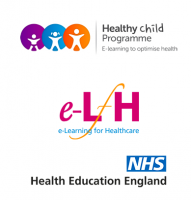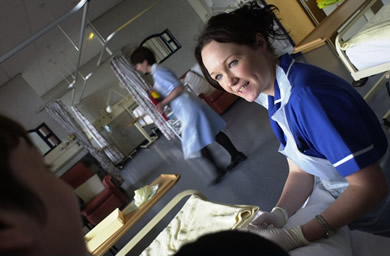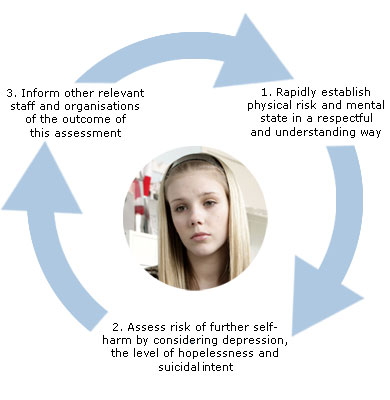The Assessment and Management of Self-harm course for GPs



This session provides an overview of the assessment and management of self-harm in respect of young people who present to the service. It provides guidance on the role of primary care, emergency departments and hospital services. It is based on current guidelines and best practices and informed by a number of key publications by Royal Colleges and NICE. This session follows on from Session 10_002 Introduction to Self-Harm (401-0047), which helps to align attitudes and beliefs for healthcare professionals.
Learning Objectives
By the end of this session you will be able to:
- Conduct initial assessment and treatment for young people who have self-harmed whether in the primary care or hospital setting (risk assessment)
- Be able to undertake appropriate initial management for episodes of self-harm in the primary care or hospital setting (risk management)
- Understand the principle of management of deliberate ingestion and self-poisoning in young people
Self-harm among young people is a major public health issue in the UK. It affects at least one in 15 young people and some evidence suggests that rates of self-harm are higher than anywhere else in Europe. Self-harm blights the lives of young people and seriously affects their relationships with families and friends. It presents a major challenge to all those in services and organisations that work with young people, from community groups and schools through to hospital accident and emergency departments and beyond.
Before commencing this session you should complete the following AH sessions:
- 10_002 - Introduction to Self-Harm (401-0047)
- 03_002 - Capacity and Consent (401-0011)
- 03_003 - Confidentiality (401-0012)
Chris (MSc HPPF (LSE), MA Education) has been involved in the development of medical education programmes for a large number of years both at undergraduate and postgraduate level. His special interests include the psychosocial aspects of adolescent well-being and child protection.


Dickon Bevington is a Consultant in Child and Adolescent Psychiatry. He is employed by Cambridge and Peterborough NHS Foundation Trust and in London at the Anna Freud Centre. He has worked for a large part of his career in adolescent in-patient care, and now specialises in adolescent Substance Use Disorders, in particular an innovative outreach intervention known as IMP (Integrative Multimodal Practice), in which he runs trainings through the AFC.


- Testosterone Deficiency and Male Hypogonadism cour...
- Posted By eIntegrity Healthcare e-Learning
- Posted Date: 2024-12-21
- Location:Online
- Many men experience a gradual decline in bioavailable testosterone with age. It is associated with o...
- Diagnosis and Management of Gout course for GPs
- Posted By eIntegrity Healthcare e-Learning
- Posted Date: 2024-12-21
- Location:Online
- This session covers the diagnosis and management of gout, and how to differentiate gout from other a...
- Pituitary Problems in Primary Care (including Hype...
- Posted By eIntegrity Healthcare e-Learning
- Posted Date: 2024-12-21
- Location:Online
- The session looks at the pituitary gland and associated disorders. Prolactinomas and associated symp...
- Secondary Endocrine Causes Of Hypertension course ...
- Posted By eIntegrity Healthcare e-Learning
- Posted Date: 2024-12-21
- Location:Online
- This session gives an overview of the secondary causes of hypertension. It discusses some of the cau...
- Prescribing Long-Term Steroids course for GPs
- Posted By eIntegrity Healthcare e-Learning
- Posted Date: 2024-12-21
- Location:Online
- This session emphasises the importance of safe prescribing of steroids and demonstrates how this can...








